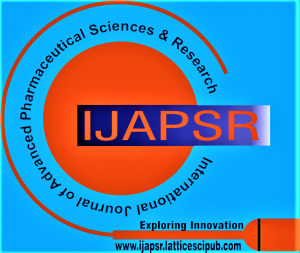![]()
Knowledge, Attitude, and Practice of Self-Medication in Syria
Ola Wanous1, Ayat Abbood2
1Ola Wanous, Student, Faculty of Pharmacy, University of Tishreen, Latakia, Syria.
2Ayat Abbood, Professor, Department of Medicinal Chemistry and Quality Control, Faculty of Pharmacy, University of Tishreen, Latakia, Syria.
Manuscript received on 26 May 2025 | First Revised Manuscript received on 02 June 2025 | Second Revised Manuscript received on 16 July 2025 | Manuscript Accepted on 15 August 2025 | Manuscript published on 30 August 2025 | PP: 1-6 | Volume-5 Issue-5, August 2025 | Retrieval Number: 100.1/ijapsr.D407705040625 | DOI: 10.54105/ijapsr.D4077.05050825
Open Access | Editorial and Publishing Policies | Cite | Zenodo | OJS | Indexing and Abstracting
© The Authors. Published by Lattice Science Publication (LSP). This is an open-access article under the CC-BY-NC-ND license (http://creativecommons.org/licenses/by-nc-nd/4.0/)
Abstract: This study aimed to assess knowledge, attitudes, and practices regarding self-medication among Syrians, with a focus on identifying factors and perceived risks associated with this behaviour. The online questionnaire was conducted between October 2023 and March 2024, yielding 103 valid responses. The questionnaire consisted of four sections: demographic information, self-medication behaviour, sources of information and motivation, and perception of risk. A vast majority (89.3%) of participants self-medicated, with 35% doing so more than five times in the past six months. The most used drugs were painkillers (86.4%), vitamins (31.1%), and herbal remedies (23.3%). Headaches, toothaches, allergies, and colds were the illnesses most frequently treated at home. Despite relatively high knowledge levels regarding side effects (79.6%) and prescription requirements (83.5%), over half of the participants (54.4%) chose to use antibiotics without consulting a medical professional. The primary sources of information were personal experiences (72.8%) and recommendations from pharmacists (47.6%). Although participants recognised risks, such as side effects (69.9%) and antibiotic resistance (37.9%), this knowledge did not consistently translate into safer practices. Self-medication is very common among Syrians, particularly among young, urban residents. There is a coexistence of reasonable awareness levels with ongoing unsafe practices due to behavioural and systemic factors. Interventions targeting educational programs and improving access to professional healthcare services are necessary to promote responsible self-medication and reduce potential harms.
Keywords: Self-Medication, Knowledge, Practice, Survey, Syria.
Scope of the Article: Pharmacy Practice
